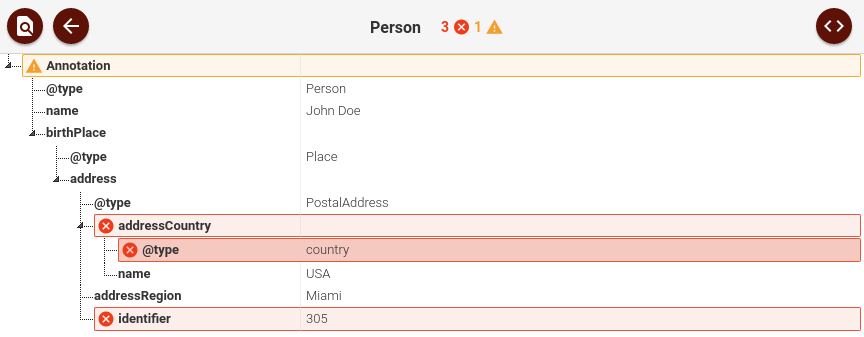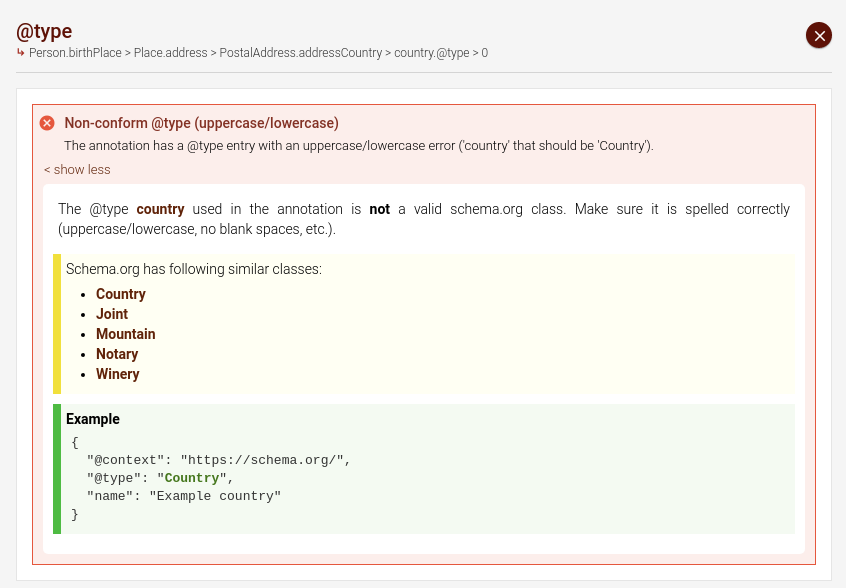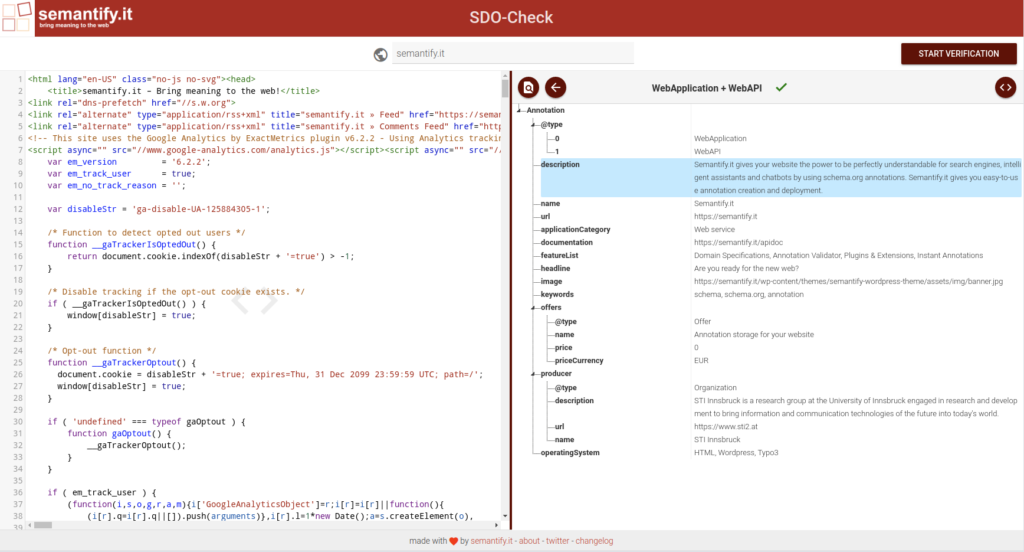SDO-Check
Today we are releasing SDO-Check, our schema.org-based semantic data testing tool!
SDO-Check is a free-to-use web-tool that enables the fast and simple verification of schema.org annotations. This latest addition to the semantify.it toolkit allows the input of a code-snippet or a web-page URL and shows the verification result in form of an interactive tree-visualization with details about all irregularities found. The verification is based on the latest version of the official schema.org vocabulary, common SEO practices, and recommendations from semantic web experts.
Features
∗ All markup formats of schema.org are supported (JSON-LD, RDFa, Microdata).
∗ Allows input of code-snippets (HTML and JSON-LD).
∗ Allows input of web-page URLs (also handles dynamically loaded structured data markup).
∗ Fully aligned with schema.org, since the verification happens dynamically with official vocabulary files.
∗ Three different error severities (Warning, Error, Critical Error).
∗ Visualization and detailed explanation of found errors.
Screenshots

Input annotation as tree-visualization with error highlighting

Details about the selected error, including an explanation of the issue, vocabulary-related context, and a dynamically generated example.
Limitations
Although SDO-Check will continue to adopt more and more features, formats, and technologies that are related to schema.org, the tool focuses on those common patterns used in schema.org annotations on web-pages. Right now SDO-Check assumes that the only vocabulary used in the input annotation is schema.org and that a simple @context is used (in JSON-LD there could be unlimited variations, but we focus on the most readable, shortest and common used versions). There are some parts of the JSON-LD specification that are not fully supported yet, e.g. the use of @reverse, @graph, or typed values.
Future work
SDO-Check is actively being improved, you will find the newest changes in our changelog.
If you have questions or feedback regarding this tool, you can contact us on Twitter or via email!
Try it out!
